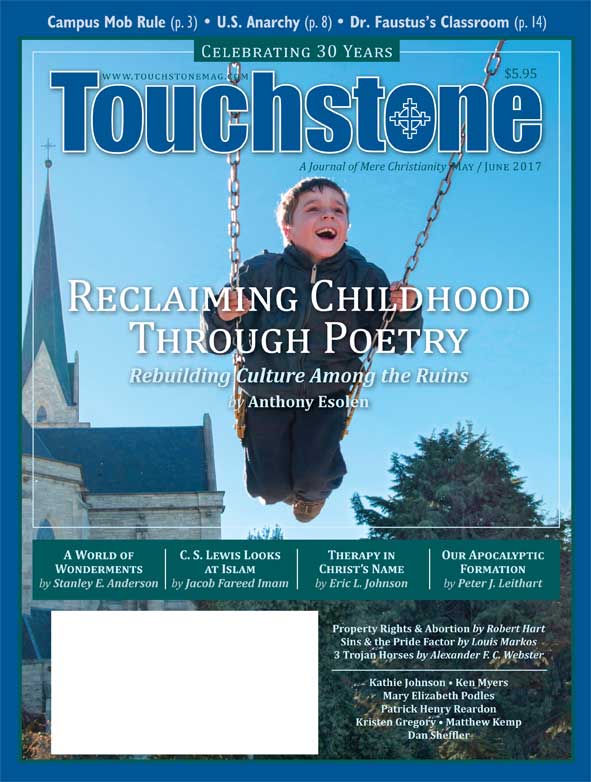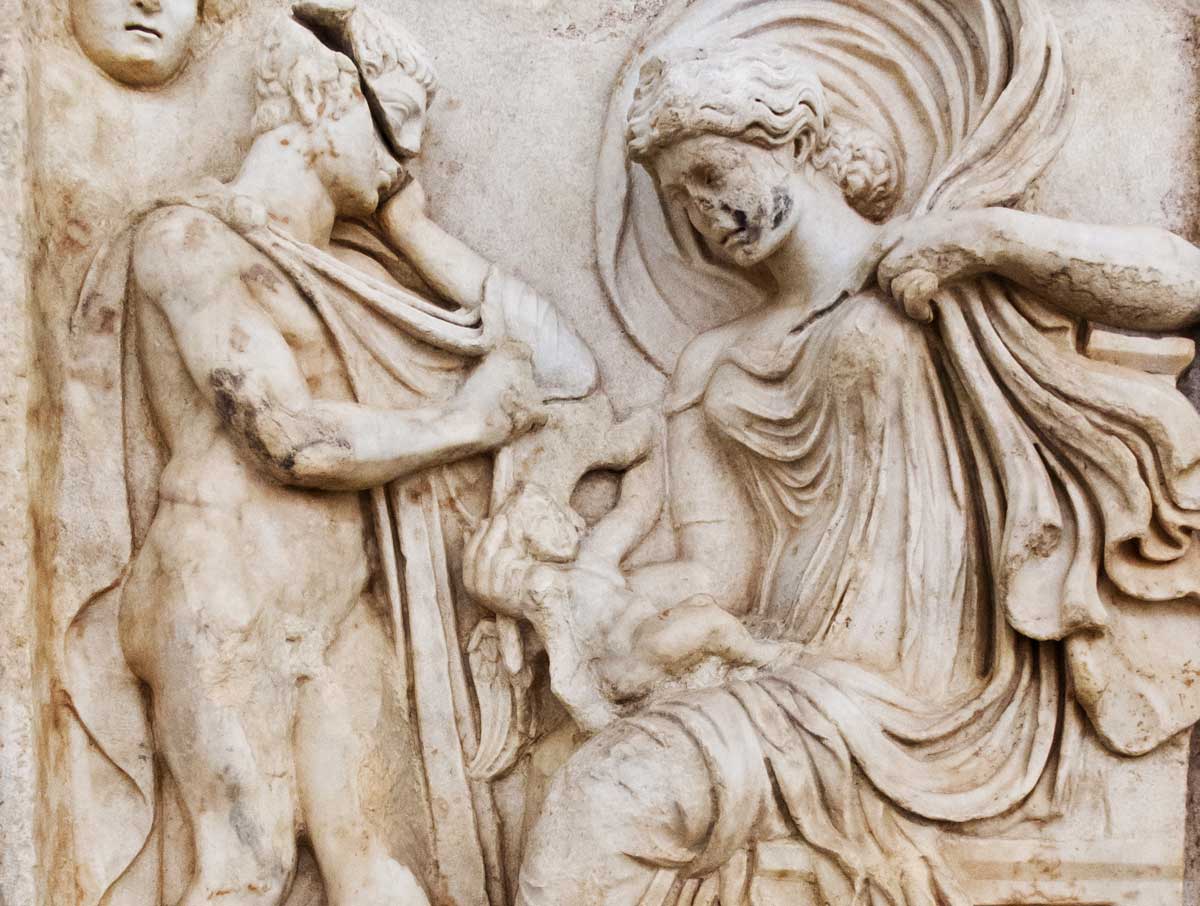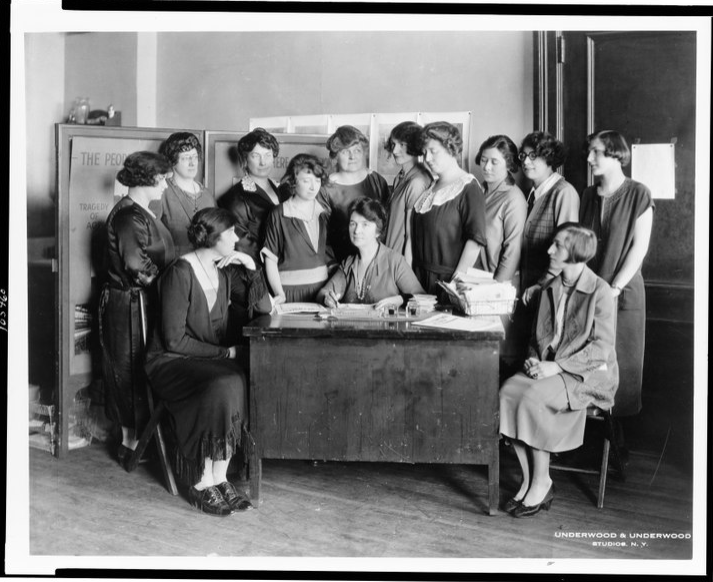View
Known Trespassing
Robert Hart on the Misuse of Property Rights to Justify Slavery & Abortion
In the third and final debate of the 2016 Presidential election, held on October 19 between Hillary Clinton and Donald Trump, the question of late-term abortion was brought up by the moderator, Chris Wallace. Clinton attempted to justify late-term abortion with the usual recitation of "life and health of the mother" (and we should ask, what about the rest of those abortions, which constitute the majority of them, that have nothing to do with the mother's life or health?). Trump responded by denouncing the procedure in a general sort of way, speaking of the baby being "ripped from the womb" at any time right up until the moment of natural birth.
I find Mr. Trump's answer to be the one most often heard when this matter is debated, but there is more to say, especially when one is speaking against that particular form of late-term abortion known as partial-birth abortion (a term that pro-abortion apologists hate for its accuracy). The National Right to Life Committee describes it this way:
Partial-Birth Abortion is a procedure in which the abortionist pulls a living baby feet-first out of the womb and into the birth canal (vagina), except for the head, which the abortionist purposely keeps lodged just inside the cervix (the opening to the womb). The abortionist punctures the base of the baby's skull with a surgical instrument, such as a long surgical scissors or a pointed hollow metal tube called a trochar. He then inserts a catheter (tube) into the wound, and removes the baby's brain with a powerful suction machine. This causes the skull to collapse, after which the abortionist completes the delivery of the now-dead baby. (nrlc.org/archive/abortion/facts/pbafacts.html)
It is obvious that the child in these cases is not only alive but fully formed, and able to live outside the mother's womb. If the purpose for terminating a pregnancy at this stage is to preserve the mother's life or health, why then kill the baby? Why not simply bring it all the way to birth? What is the point of interrupting the delivery to take the baby's life? What medical purpose can that possibly serve?
The answer is that it serves no medical purpose whatsoever. It serves only as murder, an assassination committed by a member of the medical profession.
Motives for Murder
This brings us to the argument that only the mother, with the assistance of her doctor and family, should be the ones finally to make this choice. But what is the choice we are speaking of at this point? Simply ending the pregnancy is no longer the issue, because that can be done without killing the child.
Anyone familiar with genuine homicide cases, or even with popular murder mysteries featuring fictional detectives like Hercule Poirot and Lt. Columbo, understands that family members can have strong motives for homicide. That is why they so often come under suspicion in murder cases.
Neither a mother, nor a doctor, nor family members are permitted to decide on the life or death of anyone who has been born. But even though the law allows such a decision to be made in partial-birth abortion cases, surely the motives—whatever they may be—cannot justify the act. In other murders, they would simply become part of the prosecution's case. So should it be in these cases.
A Dangerous Parallel
Robert Hart is rector of St. Benedict's Anglican Catholic Church in Chapel Hill, North Carolina (Anglican Catholic Church Original Province). He also contributes regularly to the blog The Continuum. He is a contributing editor of Touchstone.
subscription options
Order
Print/Online Subscription

Get six issues (one year) of Touchstone PLUS full online access including pdf downloads for only $39.95. That's only $3.34 per month!
Order
Online Only
Subscription

Get a one-year full-access subscription to the Touchstone online archives for only $19.95. That's only $1.66 per month!
bulk subscriptions
Order Touchstone subscriptions in bulk and save $10 per sub! Each subscription includes 6 issues of Touchstone plus full online access to touchstonemag.com—including archives, videos, and pdf downloads of recent issues for only $29.95 each! Great for churches or study groups.
Transactions will be processed on a secure server.
more on abortion from the online archives
more from the online archives
calling all readers
Please Donate
"There are magazines worth reading but few worth saving . . . Touchstone is just such a magazine."
—Alice von Hildebrand
"Here we do not concede one square millimeter of territory to falsehood, folly, contemporary sentimentality, or fashion. We speak the truth, and let God be our judge. . . . Touchstone is the one committedly Christian conservative journal."
—Anthony Esolen, Touchstone senior editor













